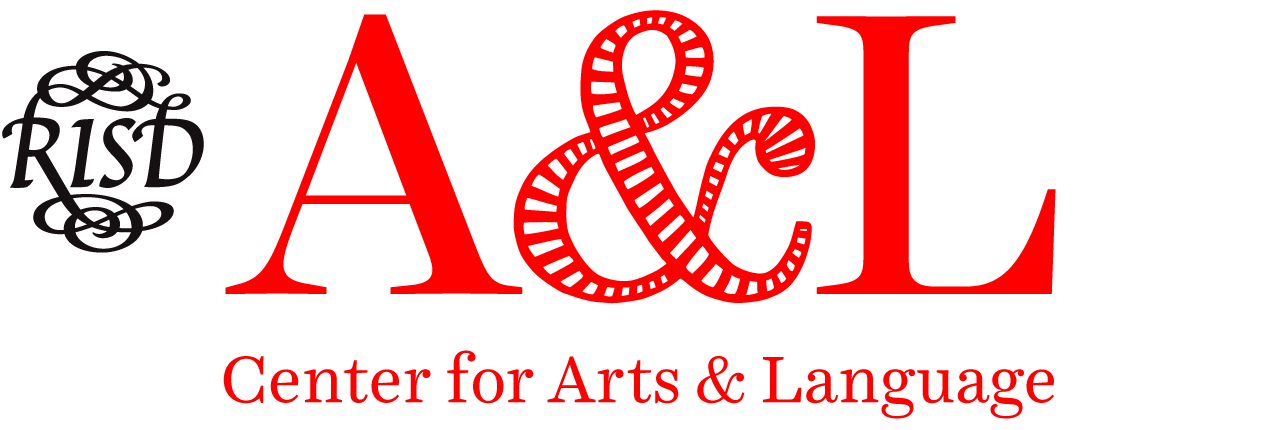Redefining Writing Essay Contest Archive
2025 Winner
“The Deadcowboy Manifesto”
by Frey Wood
Frey’s analysis of tropes in John Wayne’s western films as well as cinema at large—in the form of a screenplay of a screenplay—present a critical take on representation and cinema’s inextricable linkages to capitalism and race. We felt that the piece was speculative with fittingly poetic refrains that invite both the reader and the cowboy to dream beyond the frame of cinema and life. While we appreciated the writing for its sharp critique and artful argument making, we resoundingly agreed that Frey’s chosen form of a screenplay marries their content of film criticism quite brilliantly. Truly a multimodal piece, redefining writing!
2025 Honorable Mentions
“Sum (A1: A21)”
by Henry Ding
This essay, a personal narrative punctuated with spreadsheet rows, beautifully contends with the dissonances, affordances, and the joys of our technologically mediated lives. Through its autothetical, multimodal, multilingual, and incredibly exploratory writing, Henry’s essay asks particularly difficult questions, such as what it means to be remembered and forgotten and how we collectively mitigate the forgetting through collecting. We cherished Henry’s conversational sensemaking between lived experience and scholarly accounts, and how they graciously shared bits of their life. We eagerly waited to be let into another row, another vignette. Henry, you won’t be forgotten.
“Navigating Hypermedia”
by Ellen Fritz
A website that Ellen hand-coded themself, “Navigating Hypermedia” meticulously puts the history of hypertext & hypermedia in conversation with technological, scientific, cultural, epistemological, theological, and so many more histories. We appreciated the skillful weaving around networked and connected knowledge forms and especially loved the thoughtful structural choice of hyperlinks in determining the narrative.
“Sandscraper”
by Nathan Petree
The first poem ever to place in the Redefining Writing Essay Contest, Sandscraper’s experimental argument making stands out immediately. Metaphors float through the poem and land with sublime satisfaction in a deluge of meaning-making in the film criticism-esque endnotes. We especially appreciate the metaphor of sand and how it conveys the nitty-gritty (pun intended) of cinematic artmaking.
2024 Winner
“Girls Just Want to Be Dead and in Your Inbox:
The Bastardization of Folkloric Oral Tradition for Digital Social Capital”
by Katherine Fu
With its humor, mystery, introspection, and universal themes, this essay beautifully embodies writing redefined. Overall, it lays out a compelling critique on a cutting-edge topic. Readers are taken in by an engaging voice that blends personal and scholarly genres, discussing historical context, personal experience, and careful analysis with casual vernacular uncommon in academic texts. All this is done in a multimodal form that does a lot of work for the piece. The incorporation of images provides real-world texture; the all-caps headings and star-shaped bullet points reinforce voice; and the color scheme of green and white text on a black page evokes nostalgic html aesthetics as well as the “dark forest” beyond the campfire. This piece seems to take up the invitation to push boundaries at every opportunity, but fine-tunes those choices to be purposeful and effective.
2024 Honorable Mentions
“Displaced Ceremonial Objects as Rituals of Colonial Violence”
by Fraenkie Poluchov
Perhaps the most engaging H101 essay we’ve encountered, this piece seems to break the mold from inside it. While the form seems familiar, the first-person narrative guides us through reflections on research, happenstance, access, decoloniality, and academia. We thoroughly enjoyed the unique voice and perfectly unresolved ending that sustains tension between resentment for and submission to the task at hand.
“Queering Domesticity and Gender in China and Taiwan”
by Lio Chan
We applaud this essay for its nuanced take on a complex topic. The combination of lived experience and scholarly research builds a cross-cultural and inter-generational exploration that feels expansive and experimental. The translingual element highlights the aspects of language and culture that are interdependent—and not always easy to translate.
“Queer Traces — Belief in Fairies”
by Page Sonnet Sullivan
While this essay centers around the personal, it ultimately connects to broader, collective themes. The text weaves together historical research and personal anecdotes, placing the author’s work and identity into meaningful context. And the author’s warm, engaging, and considerate voice makes it a true pleasure to read.

